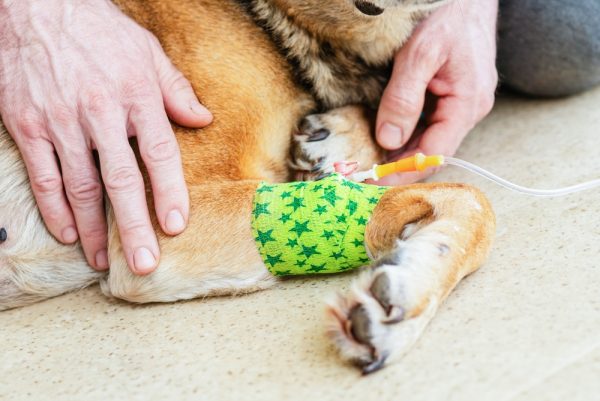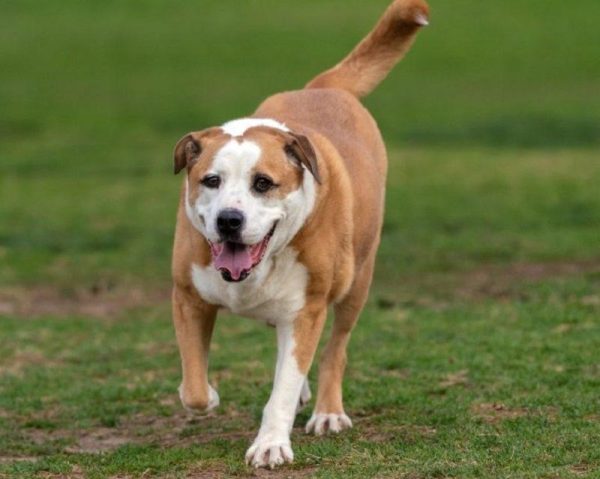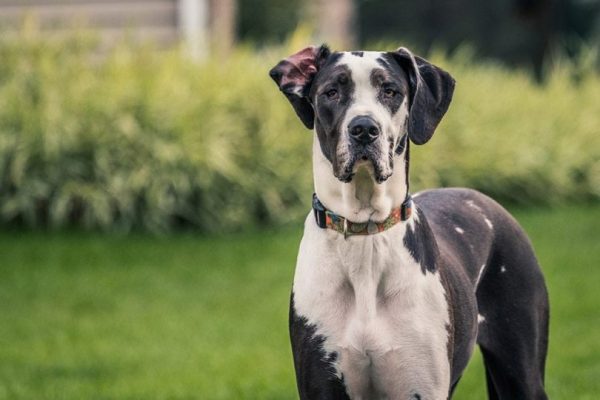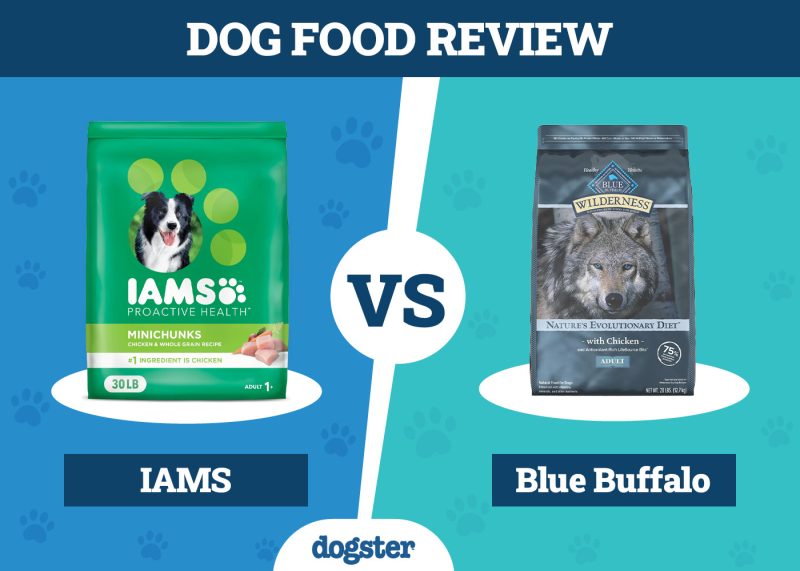In this article
Bringing a new puppy into your home can be both exciting and overwhelming. You’ll undoubtedly experience the joy that comes with puppy cuddles, playtime, and watching them grow. There’s also a lot to think about—feeding, exercise, toilet training, and vaccinations. But vaccinations don’t need to be stressful.
This article will discuss what to expect, which vaccinations are most important, the possible side effects of vaccinations, and what will happen with vaccinations in the future.

What Happens at Puppy Vaccinations?
Puppy vaccinations are more than just a vaccination. In fact, they are a consultation with a veterinarian. This comprises a full physical exam, checking every part of your puppy from the nose to tail. It is a chance for your vet to assess your puppy’s overall health and check for any hereditary abnormalities.
It is also a chance to discuss training, parasite prevention, and de-sexing. All of these aspects of canine care will be unique to you and your dog – there is no “one size fits all” approach.
The vaccination itself is an injection given under the skin, generally in the scruff of the neck. Depending on the brand and type of vaccination, more than one injection may be necessary. Some forms of “kennel cough” vaccines (see below) are given orally (into the mouth) or intranasally (into the nostril).
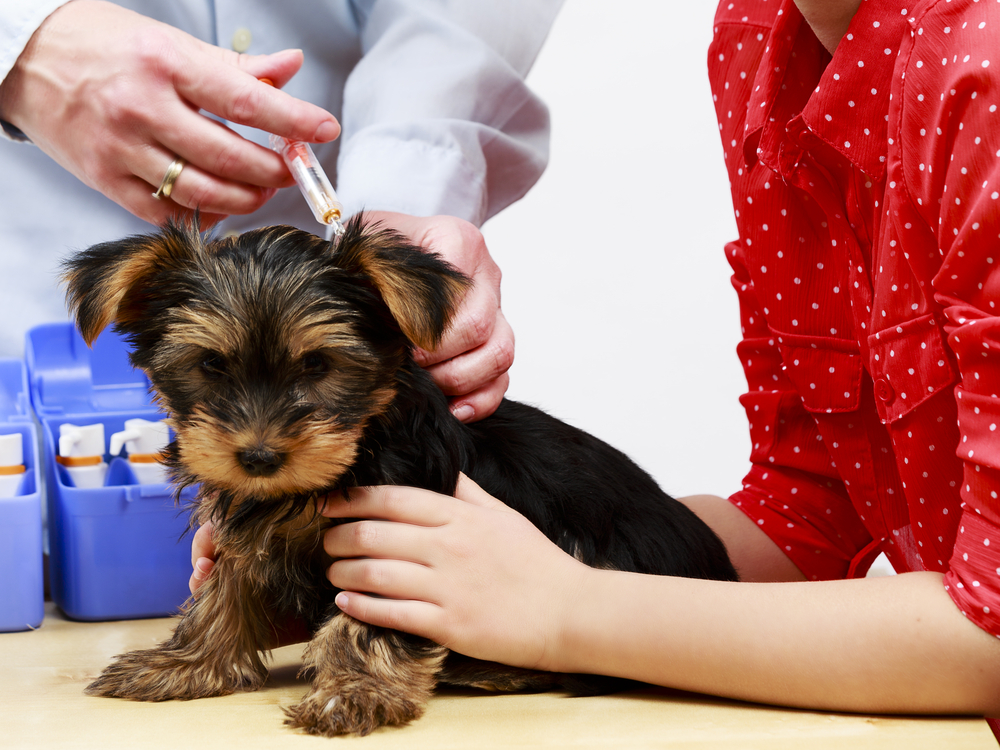
Why Do Puppies Need Vaccinations?
Puppies need vaccinations for the same reasons children and people do: to protect against potentially fatal diseases. For the first few weeks of a puppy’s life, they receive antibodies through their mother’s milk. Antibodies are what the immune system sends out to fight foreign substances like viruses and bacteria.
After a few weeks, the levels of these antibodies diminish, as puppies suckle less milk. This puts them at risk of falling ill if they come into contact with infectious diseases. Vaccinations are then given to “train” the dog’s immune system to fight a disease, preparing the body for an effective immune response.
Which Dog Vaccinations Are Necessary?
The first vaccination is generally given between 6 and 8 weeks of age.
Essential Puppy Vaccinations
- Parvovirus
- Adenovirus (viral hepatitis)
- Distemper virus (These vaccines are usually combined into a single injection, sometimes referred to as a “C3” or “DHP” vaccination)
- Rabies virus (mandatory in the USA)
Strongly Recommended Vaccinations
- Canine parainfluenza
- Bordetella bronchiseptica (This vaccination is colloquially referred to as the “kennel cough” vaccination)
Optional Vaccinations
- Leptospira (different “strains” exist)
- Lyme Disease
- Rattlesnake toxoid (These vaccinations may or may not be recommended, depending on where you live and your dog’s level of risk. They are given on a “case-by-case” basis)
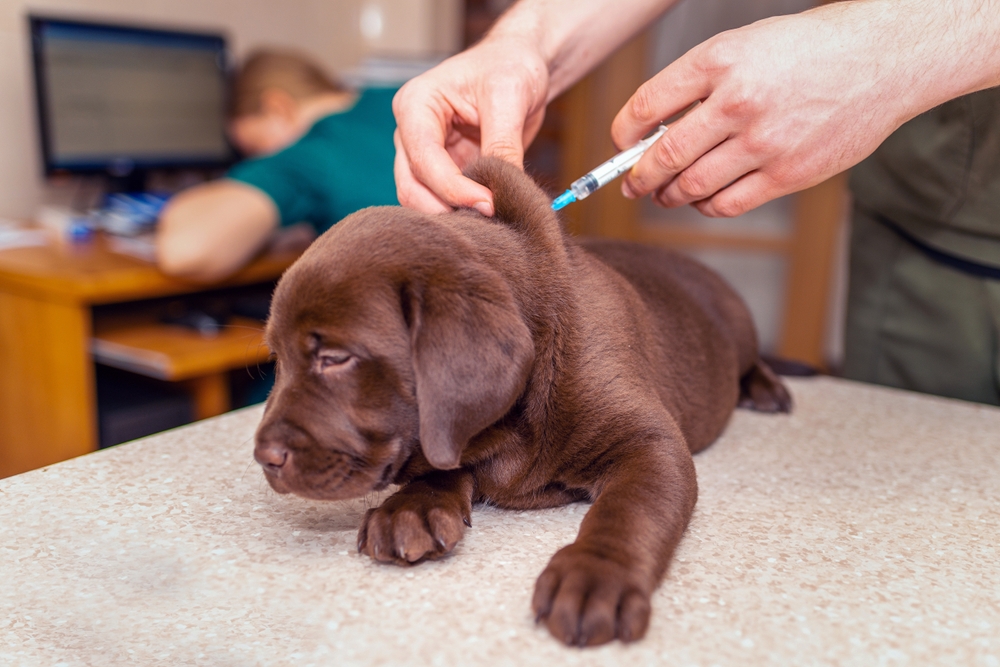
Are There Any Side Effects with Dog Vaccinations?
Thankfully, dog vaccinations are very safe and side effects are rare. Side effects sometimes encountered include:
- Lethargy or reduced appetite
- Vomiting
- Swelling of the face and neck
- Hives
- Swellings or tenderness at the injection site
We recommend contacting a veterinarian if you notice any of these signs at home.
If you need to speak with a vet but can't get to one, head over to PangoVet. It's our online service where you can talk to a vet online and get the advice you need for your dog — all at an affordable price!

How Long Before My Dog Is Protected?
Generally, puppies are considered immune 7 days after their second vaccination. Until they have had their final puppy vaccination, it’s best to avoid high-density doggy areas such as dog parks and beaches.
When Is the Next Round of Vaccinations Due?
The second round of vaccinations is given one month after the first. Your vet will discuss with you when the final vaccine is due; this is usually at or just after 16 weeks of age.


Conclusion
Vaccines are a safe, easy, and affordable way to reduce the risk and incidence of preventable canine diseases. Don’t underestimate the importance of puppy vaccinations. At the same time, don’t let puppy vaccinations stress you out. Remember, your vet will guide you through which vaccinations are best and when vaccinations will be due.
Featured Image Credit: ARVD73, Shutterstock








